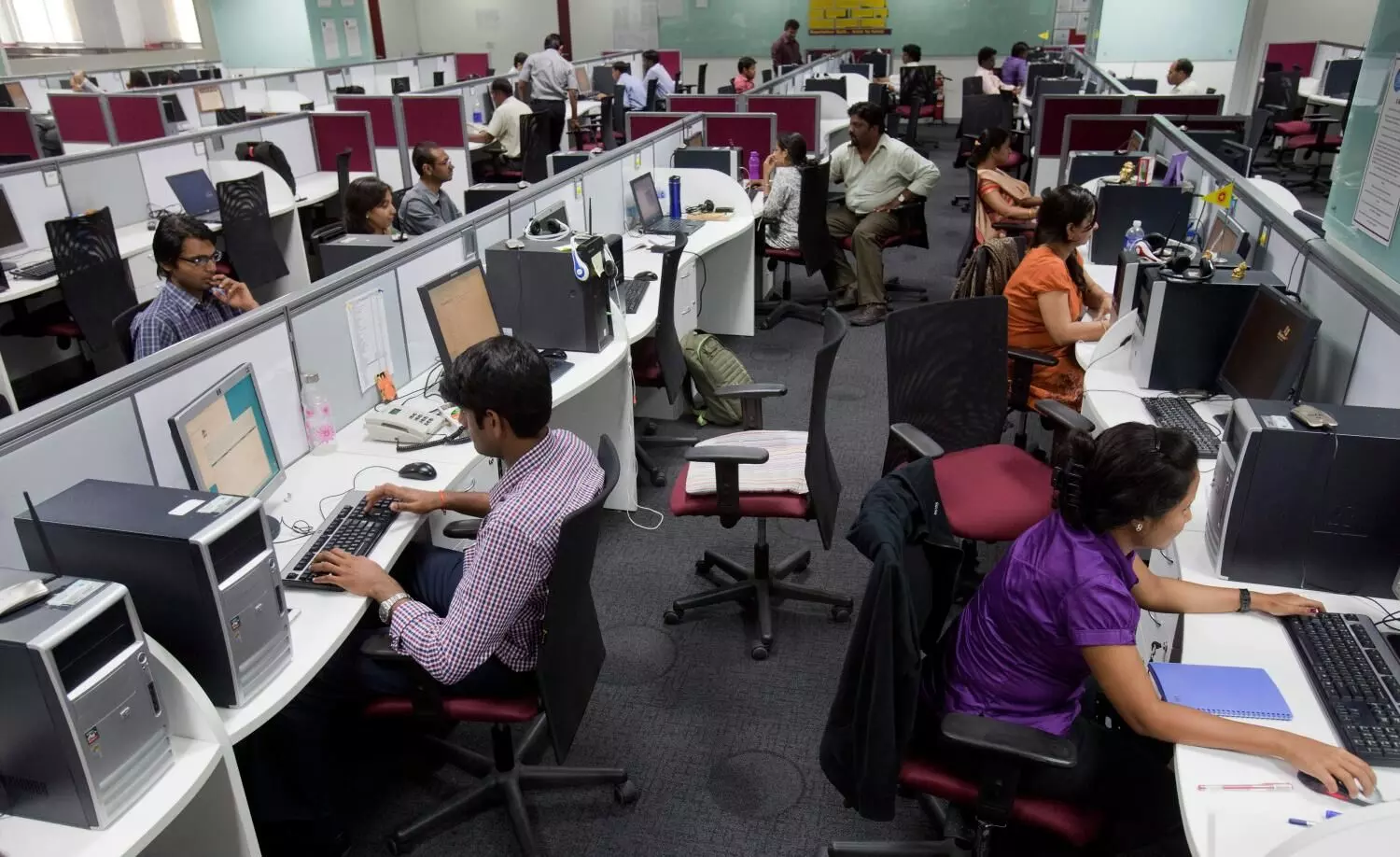Forget caste census, Andhra starts India's first 'Skill Census' to address unemployment problem
It was Deputy CM Pawan Kalyan who first proposed the idea of a Skill Census instead of the caste census.
By Sri Lakshmi Muttevi
Representational Image.
Amaravati: Andhra Pradesh government has proposed `Skill Cenus’ to identify skill profiles, skill needs, and skills in demand and design the training program for the youth accordingly.
Andhra Pradesh has become the first state in the country to start a `Skill Census'.
This is one of the NDA's electoral manifestos released by Chief Minister N Chandrababu Naidu and Deputy CM Pawan Kalyan.
What was the idea of Pawan Kalyan?
It was Pawan Kalyan who first proposed the idea of a Skill Census instead of the caste census. On several occasions, Pawan Kalyan stressed the need for a Skill Census and suggested that the government understand the skills and guide them accordingly. Pawan Kalyan opined that the skills census should be an extension of the caste census. And the skills of any person should not be decided based on their caste.
Study to be done in 3 months
So, what is this skill census? Do the youth or women in the state lack the skills to get jobs? No such study has been conducted on the skill census in India. Andhra Cabinet approved the Skill Census-2024 in its recent meeting.
This will be a first-of-its-kind comprehensive assessment and data collection aimed at understanding the skills and competencies of individuals and the skills the industries are looking for. The government plans to complete the whole process in three to four months.
According to the officials, soon a mobile app will be launched to conduct online survey.
Need to access skill gap
According to the government, about 4.4 lakh youths graduate from 310 engineering colleges, 1400 degree colleges, 267 polytechnic colleges, and 516 ITI colleges annually. However, the skill gap must be assessed based on demand, supply, and available facilities, considering the current and future needs in industries, agriculture, marketing organizations, and production organizations.
The main objectives of the Skill Census are to identify and estimate the gap between the available skill profiles, skill needs, and Skill in demand and further provide design skill development training for the youth accordingly.
What do the senior IAS officers say?
Speaking to NewsMeter, retired IAS officer PV Ramesh said, "The main intention of this Skill Census is to see what skills are required from the people so that investment can be made. I feel there is certainly a need for a more targeted upskilling of the youth who are unemployed or semi-employed or underemployed. Skill census can help in identifying demand supply mismatch of skills and bridge the gap and make people employable,"
"In the future, the government can establish a web portal, in which all those people who are employed or unemployed or those seeking employment in the right field can enroll and upload their information. Before the Andhra Pradesh Public Service Commission and District Selection Committees came into being, there was a department of employment in the state. You're registered, and based on your seniority, you are called for interviews or examinations. This kind of employment exchange needs to be brought through the digital portal, particularly for the lower-grade jobs," said PV Ramesh.
He added, "The portal will serve a dual purpose: an employment exchange. Firstly, the government can take a census of the skills of the youth, and based on that, the government can understand the skill gap."
According to him, the concept of creating portals jobs is seen in countries like the USA and Singapore. He opined that the government is taking a step to provide jobs instead of private institutions, seizing the opportunity for the development of the state.
Finding the mismatch
Speaking to NewsMeter, TDP MP from Bapatla T Krishna Prasad said, "Three important factors are jobs, investments and Skill. People need skills for jobs, so skill census is an important factor. The government would find a mismatch between skills needed and the available skills, which helps to provide better employment opportunities."
According to the former IPS officer, a house-to-house survey to determine the number of skilled youth and women can give a sense of the ground situation.